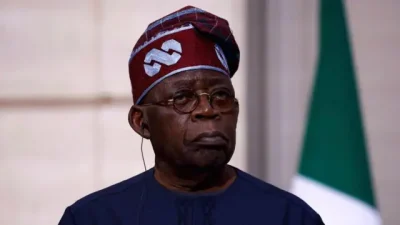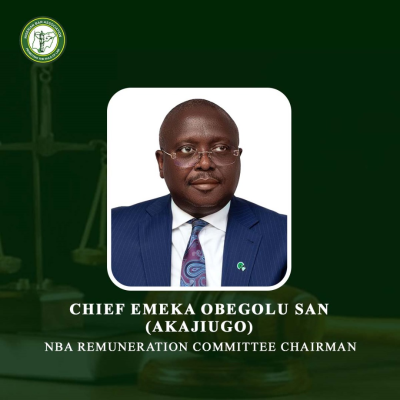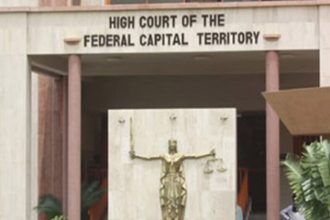Abuja, Nigeria — Fresh outrage has greeted President Bola Ahmed Tinubu’s latest presidential pardon after it emerged that one of the beneficiaries of the clemency exercise is the notorious kidnap kingpin and armed robbery mastermind, Kelvin Prosper Oniarah, popularly known as Kelvin Ibruvwe.
Kelvin, once described by security agencies as one of Nigeria’s most dangerous criminals, was among the 147 inmates recently granted clemency under the federal Prerogative of Mercy initiative approved by the Council of State.
From Terror to Clemency: The Story of Kelvin Oniarah
Now 44 years old, Kelvin was a feared underworld figure in the early 2010s. He led a vicious kidnapping and armed robbery network that terrorised residents across the South-South and South-East, leaving behind a grim record of abductions, assassinations, and violent robberies.

He was arrested on September 25, 2013, in Port Harcourt, Rivers State, by a joint operation of the Department of State Services (DSS) and the Nigerian Army, marking one of the country’s most celebrated law enforcement victories against organised crime at the time.
Before his capture, Kelvin had publicly issued a 60-day ultimatum to the Federal Government, threatening mass violence if his gang members were not released, a brazen act that sent shockwaves through Nigeria’s security circles.
Security reports linked him to several high-profile kidnappings, including:
-
Barrister Mike Ozekhome, SAN, who was abducted along the Auchi–Benin highway on August 24, 2013;
-
Dr. Chudi Nwike, a former Deputy Governor of Anambra State, who was reportedly murdered while in Kelvin’s custody;
-
A Judge of the Edo State Judiciary;
-
A female official of the Federal Inland Revenue Service (FIRS); and
-
Several NYSC members and security personnel abducted or killed during his reign of terror.
Authorities further accused Kelvin of maintaining multiple detention and operational camps in Warri and Kokori (Delta State), Ugbokolo (Benue State), Benin City (Edo State), and Aba (Abia State), where victims were held and ransom negotiations conducted.
Following his arrest, he was convicted and sentenced to prison for a string of violent crimes, including kidnapping, armed robbery, and terrorism-related charges.

Tinubu’s Presidential Pardon and Public Backlash
Kelvin’s inclusion in President Tinubu’s recent clemency list has provoked outrage among victims’ families, civil society organisations, and opposition parties, who describe the move as a “national disgrace” and “an open invitation to anarchy.”
The controversial clemency exercise, approved during the October 9, 2025, Council of State meeting, saw 147 inmates — including convicted drug traffickers, kidnappers, and political offenders — freed or have their sentences reduced.
A statement by Presidential spokesman, Bayo Onanuga, on October 11, explained that the gesture was intended as “a mark of compassion, justice, and national healing.”
The decision followed recommendations by the Presidential Advisory Committee on the Prerogative of Mercy, chaired by the Attorney-General of the Federation and Minister of Justice, Prince Lateef Fagbemi (SAN).
According to the Presidency, the committee reviewed 175 cases, ultimately granting full or partial mercy to 147 individuals, including Maryam Sanda, Ken Saro-Wiwa, Major-General Mamman Vatsa, Sir Herbert Macaulay, and several deceased historical figures.
A Controversial List of Beneficiaries
The list of pardoned individuals spanned a wide range of offences — from violent crimes to political convictions and white-collar corruption cases.
Among those granted clemency or sentence reduction were:
-
Hon. Farouk Lawan, former lawmaker convicted in the oil subsidy bribery scandal;
-
Professor Magaji Garba, ex-Vice Chancellor of the University of Maiduguri, convicted of corruption;
-
Barrister Hussaini Alhaji Umar, former Independent Corrupt Practices Commission (ICPC) convict; and
-
Ayinla Saadu Alanamu, former State Universal Basic Education Board (SUBEB) boss convicted of procurement fraud.
Posthumous pardons were also conferred on national figures such as:
-
Sir Herbert Macaulay, who was convicted by British colonial authorities in 1913;
-
Major-General Mamman Vatsa, executed for alleged treason in 1986;
-
Ken Saro-Wiwa and eight members of the Ogoni Nine, executed in 1995 by the Abacha regime; and
-
Ogoniland chiefs Albert Badey, Edward Kobaru, Samuel Orage, and Theophilus Orage, who were declared victims of state repression.
Public Reaction: Outrage and Fear
Civil society groups and human rights organisations have expressed alarm at the inclusion of violent criminals such as Kelvin Oniarah among the pardoned.
The Centre for Human Rights Advocacy (CHRA) described the decision as “reckless and demoralising to security agencies that risked their lives to bring such individuals to justice.”
Security analysts have also warned that the release of hardened convicts could undermine ongoing anti-crime efforts and embolden criminal gangs in volatile regions.
“Kelvin’s crimes shook the nation. His release sends a dangerous message that the state can undo years of justice under the banner of mercy,” one retired DSS officer told reporters.
Government’s Defence
The Presidency insists the pardon process followed due legal and procedural review, emphasising that the goal was national reconciliation and reintegration of reformed offenders.
“The clemency exercise was not arbitrary. It was a product of careful vetting by the Advisory Committee on the Prerogative of Mercy, which considered factors such as age, health, conduct, remorse, and years served,” the Presidency stated.
However, critics argue that releasing individuals convicted of capital offences like kidnapping and murder undermines justice, weakens deterrence, and risks public safety.
A Shadow Over Tinubu’s “Compassionate Justice” Agenda
President Tinubu’s clemency gesture — which he described as an act of “compassionate justice” — has become one of his most controversial decisions to date.
While it sought to symbolise healing and reform, the inclusion of figures like Kelvin Oniarah has overshadowed the intended message, sparking a national debate over the boundaries of mercy in governance.
As public outrage grows, families of past victims and survivors of violent crime are demanding transparency on the selection process and calling for a review of the Prerogative of Mercy guidelines to ensure that “mercy does not become a tool for impunity.”
Related:









